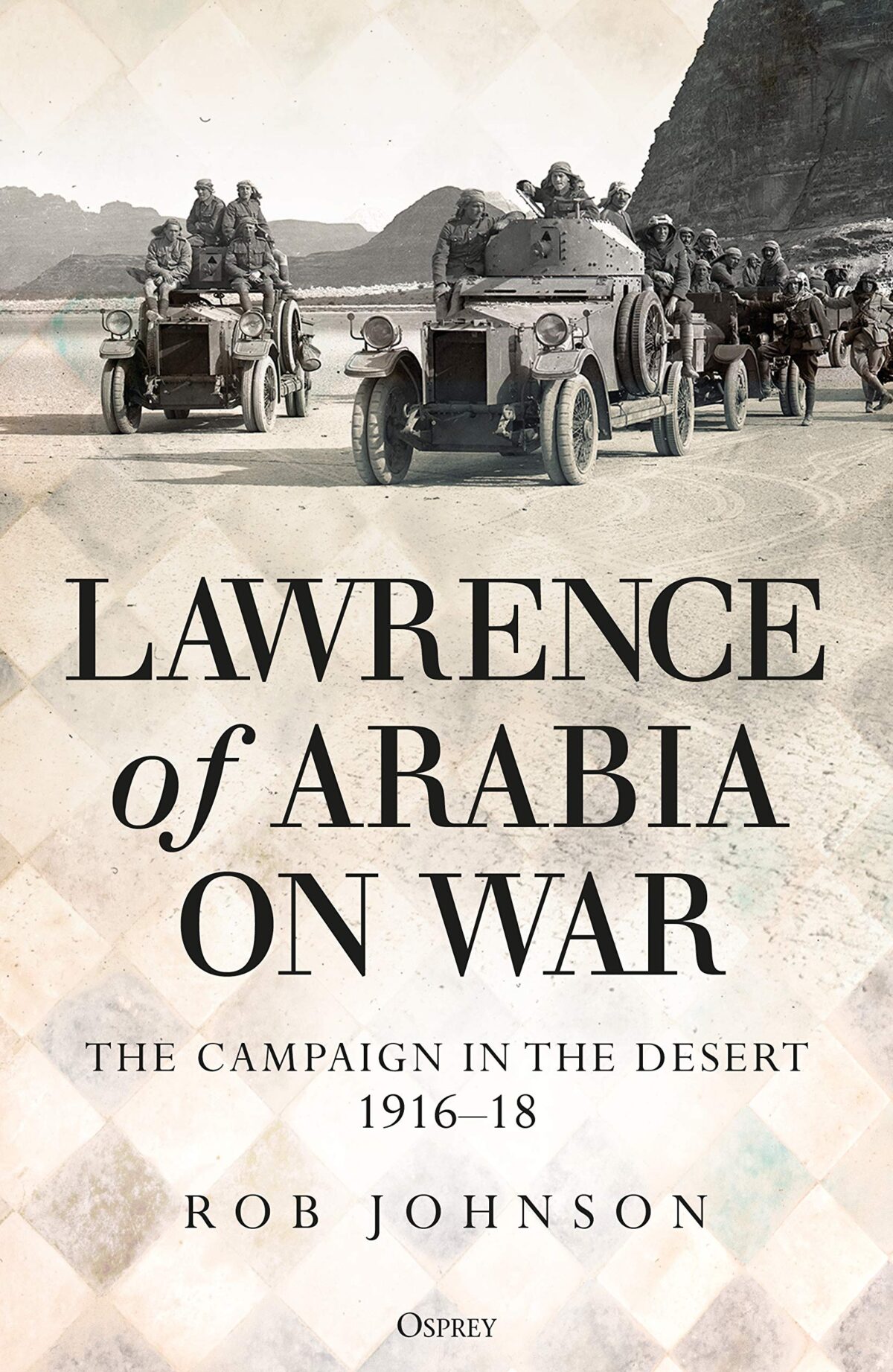Johnson, Rob. Lawrence of Arabia on War: The Campaign in the Desert, 1916-1918. New York: Osprey, 2020.
There is an old debate, likely familiar to any who have taken a serious military history course on the American Civil War, about whether that conflict was the last Napoleonic or first modern war. Students of the First World War and 20th century Europe in general might well find this argument laughable; while the American Civil War was certainly different from many other nineteenth-century conflicts, the Great War of 1914 to 1918 is the watershed through which all subsequent ‘modern’ conflict has flowed. Perhaps even more important than the changing face of war was the changing mind of war, as logistics and planning became systematized and philosophies of waging war adapted to the modern philosophies and pressures of a new world. Even such current dilemmas as counter-insurgency can find their origins during the Great War, and it is precisely this topic that Rob Johnson brilliantly illuminates in Lawrence of Arabia on War.
T. E. Lawrence may be the most recognizable officer of the First World War, due largely to the mythmaking that has occurred after his service. Knowing that my own knowledge of the actual facts of the Arab Revolt and Lawrence’s involvement were general at best, I leaped at the chance to read about it from the pen of Rob Johnson, author of the excellent The Great War in the Middle East (reviewed here on Concerning History). As I read, however, I discovered the Lawrence of Arabia on War was so much more than simply a campaign history (though it certainly is that, and a good one). As Johnson remarks in his introduction, the Arab Revolt of 1916-1918 is essentially the first modern insurgency, which makes T. E. Lawrence among the first modern ‘foreign advisors.’ Even more importantly, Lawrence was an incurable thinker and academic, and so endlessly wrote on his experiences during the war and attempted to reconcile them with the great European military theorists. Ultimately, the seachange of nationalist politics and mechanized war would lead to Lawrence developing a new philosophy of irregular conflict, and it is that development that is the running theme and brilliant illumination of Johnson’s work. Equally important to Johnson is how that philosophy has been interpreted, accurately and inaccurately, by subsequent generations of insurgents and counter-insurgents.
In service of this theme, however, Johnson can at times focus in myopically on his subject matter. While I certainly would not expect much history of other theaters in such a book, even context for other Near Eastern campaigns can be sparse, and the time frame of the revolt can also lead to disorientation, as its two years are covered in such detail it can feel like it lasted all four years of the conflict. These are, by and large, minor criticisms, however, and whether you’re looking to expand your knowledge of a specific campaign or expand your knowledge of war theory in the 20th century, Lawrence of Arabia on War is an outstanding resource.
